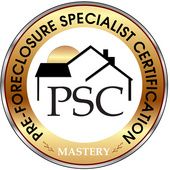Objection #2 - The Taxes Question Homeowner: Will I have to pay taxes on the forgiven amount? Before answering this question, slow down and understand where the homeowner is coming from. They have presumably heard horror stories or read articles about the dangers of the huge tax liability attached to short selling property. Don't come out with guns a'blazing. Absorb the question, identify with them, then give them a great answer. Key: Please make sure to communicate to the homeowner that you are not a tax professional and that you will not attempt to interpret the tax laws, nor will you attempt to give any tax advice. It is advised that you encourage them to seek the advice a tax professional to satisfy themselves. (Here is a great response) PSC: After we close escrow on your short sale the mortgage investor is required to send you a 1099 for the amount they forgave. Even if you do not receive it, you are required to claim that amount as income for that tax year. However, there are 2 major exceptions that exist and very possibly may help you avoid paying taxes on those losses. The first exception is the Mortgage Forgiveness Debt relief Act of 2007, which excludes as income, any short sale losses where the property was a principle residence and the loan/s was/were used to buy, build, or substantially improve the primary residence. Here is some information of that exception that is also known as HR 3648 (hand them some official content on HR 3648). The 2nd exception is called the insolvency exception, or 108(a)(1)(B). With the insolvency exception, you may be exempt from paying taxes on the amount forgiven if you are considered insolvent at the time of the short sale. This exception is not real estate specific and any type of property may qualify (meaning primary residence or investment property). Here is some information about this exception (hand them some official content on 108(a)(1)(B)). I recommend that you discuss this matter with a qualified tax professional and be sure to talk to them about these two exceptions specifically. Very few homeowners end up paying taxes on the deficiency but you need to confirm with tax professional and have them analyze your situation specifically. Even if you know more than the average person about these tax issues, avoid the temptation to generalize and go in to detail about them. What are your experiences with this issue? How have you handled this question in the past? Please share...

Comments(0)